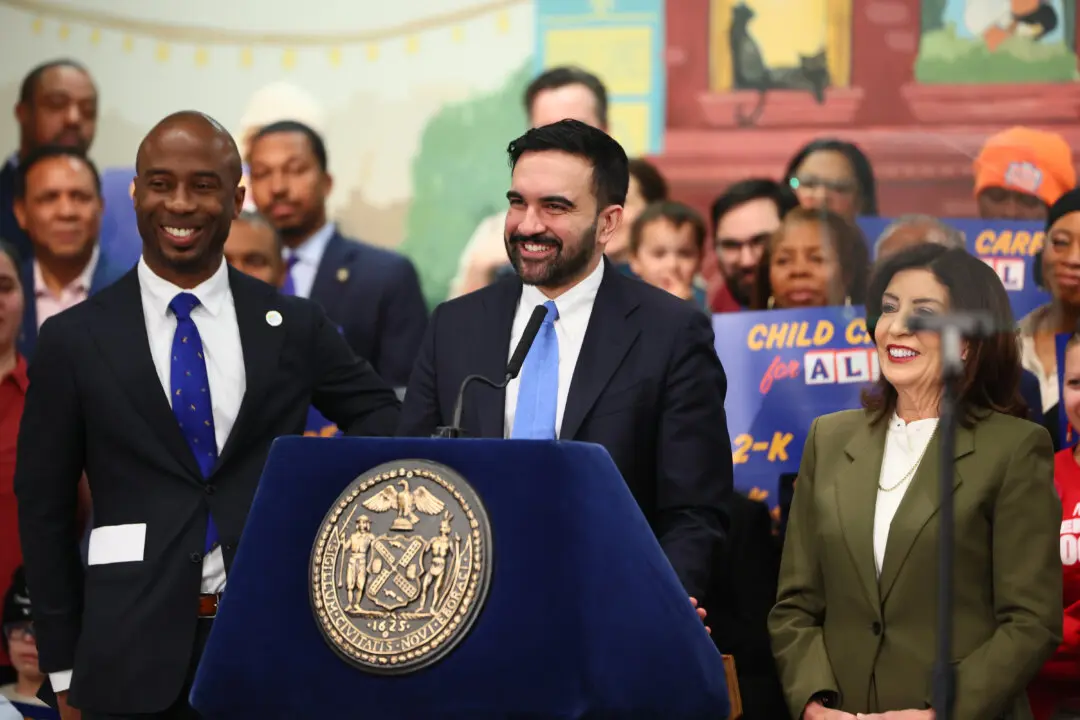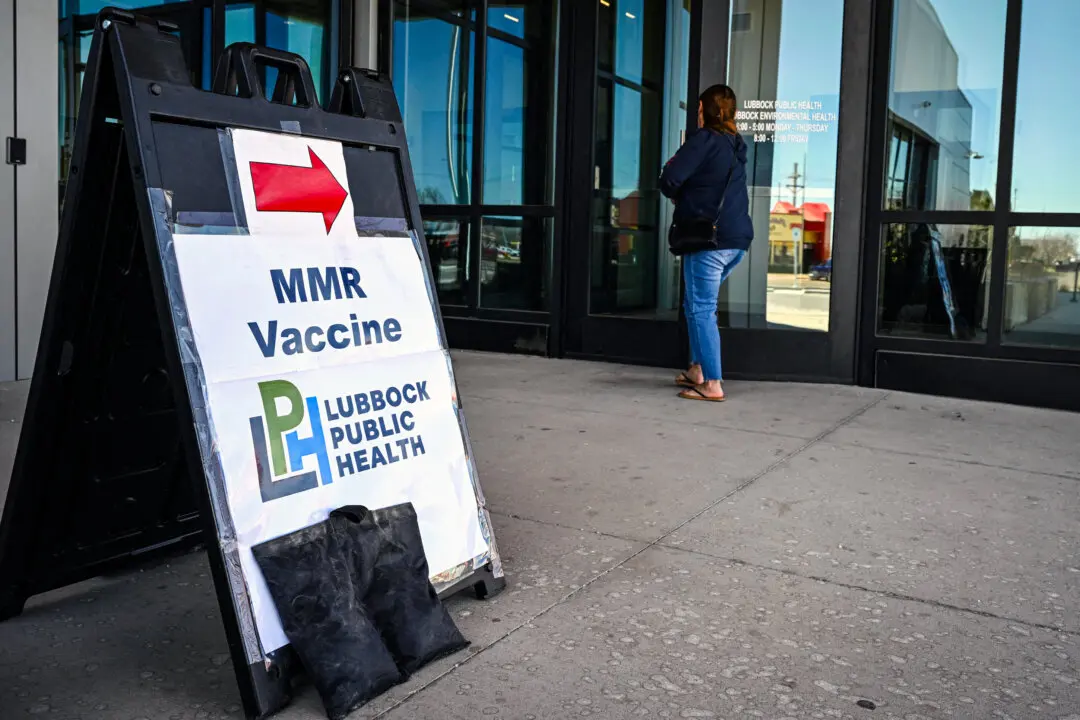
A poll worker helps voters at a polling place at Riverside University High School in Milwaukee, Wisconsin on April 7, 2020. Scott Olson/Getty Images
Wisconsin health officials are tracking cases of the CCP that may have been contracted during Tuesday’s primary election.
Gov. Tony Evers and other Democrats pushed to delay the election but the state Supreme Court blocked the bid, resulting in it taking place as planned.





